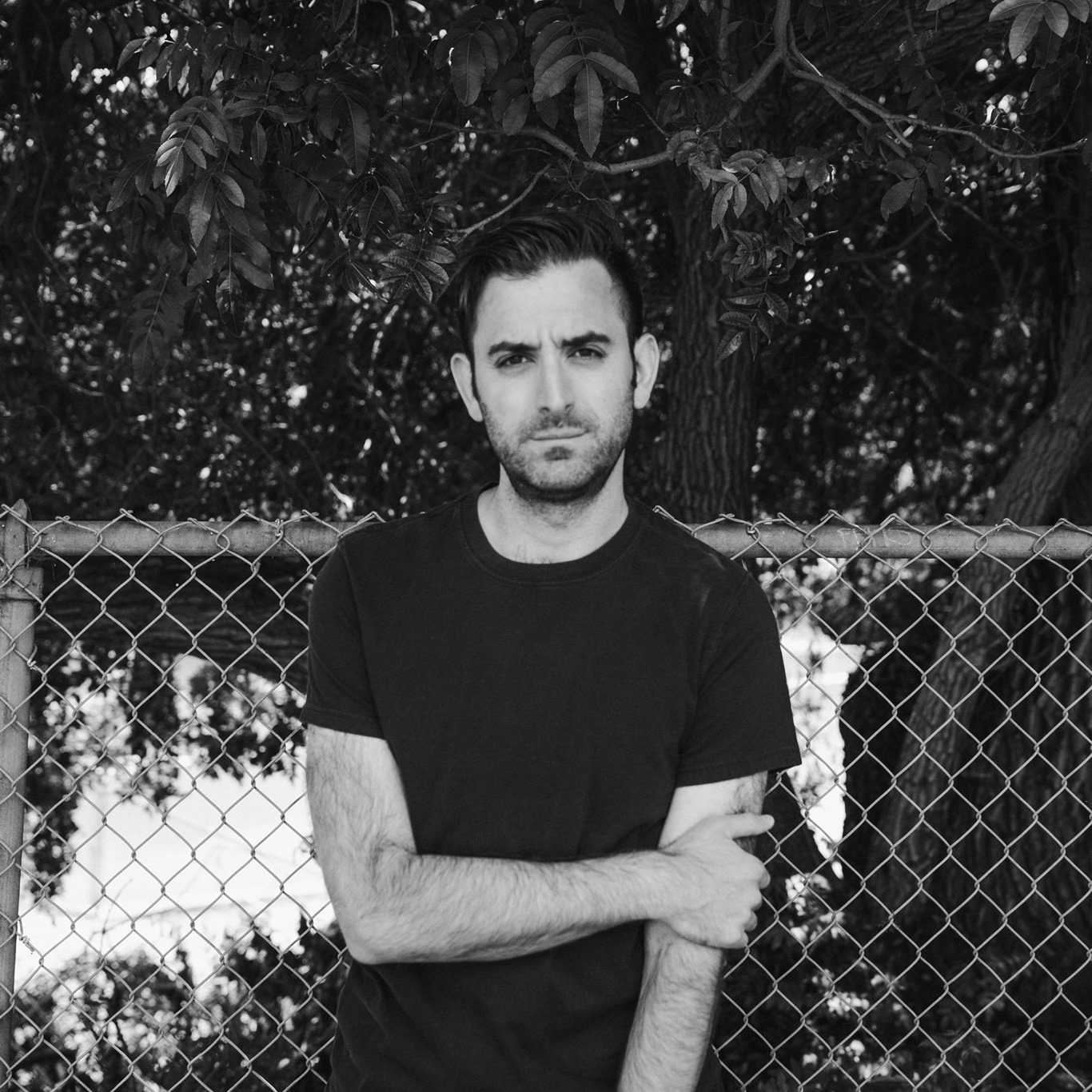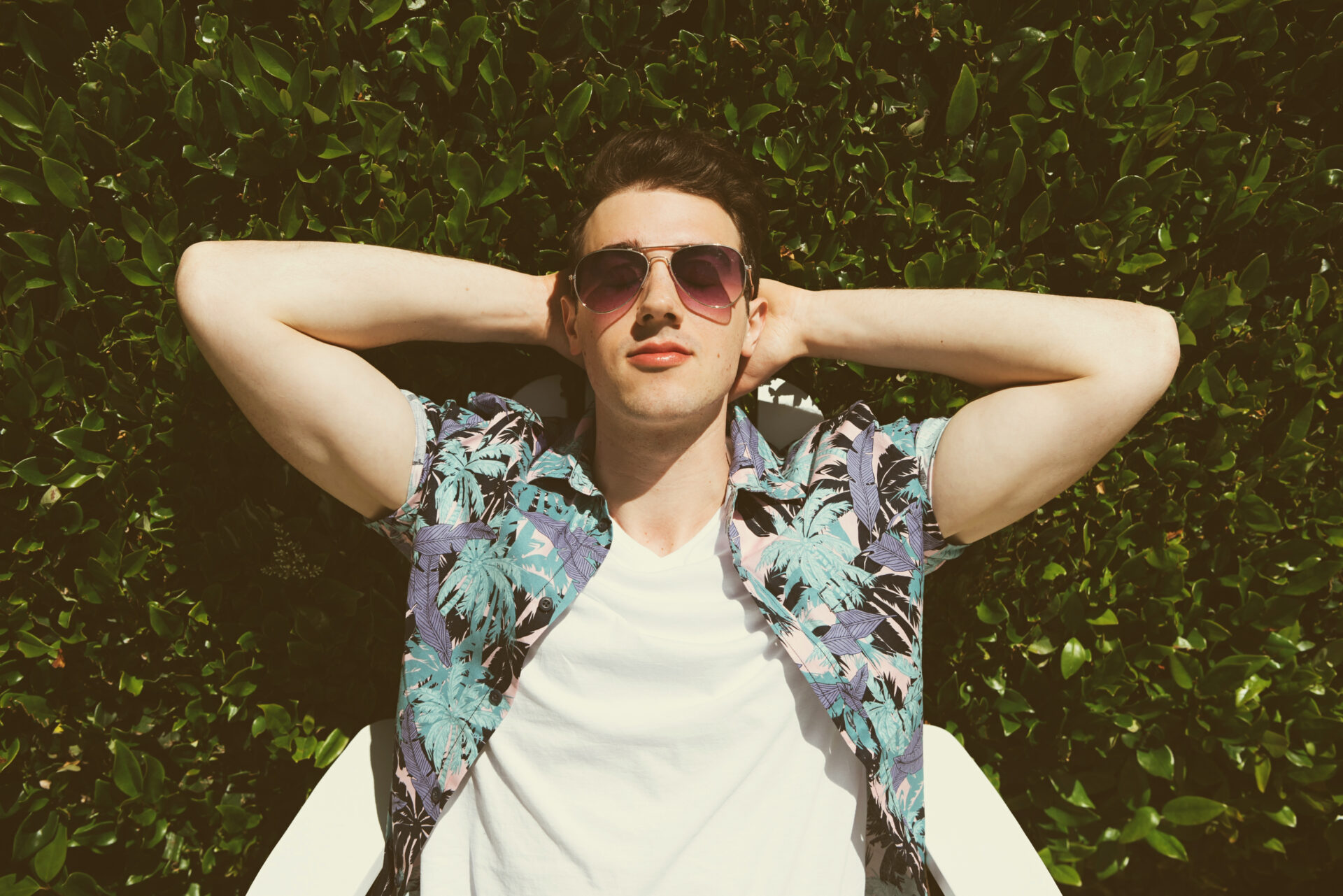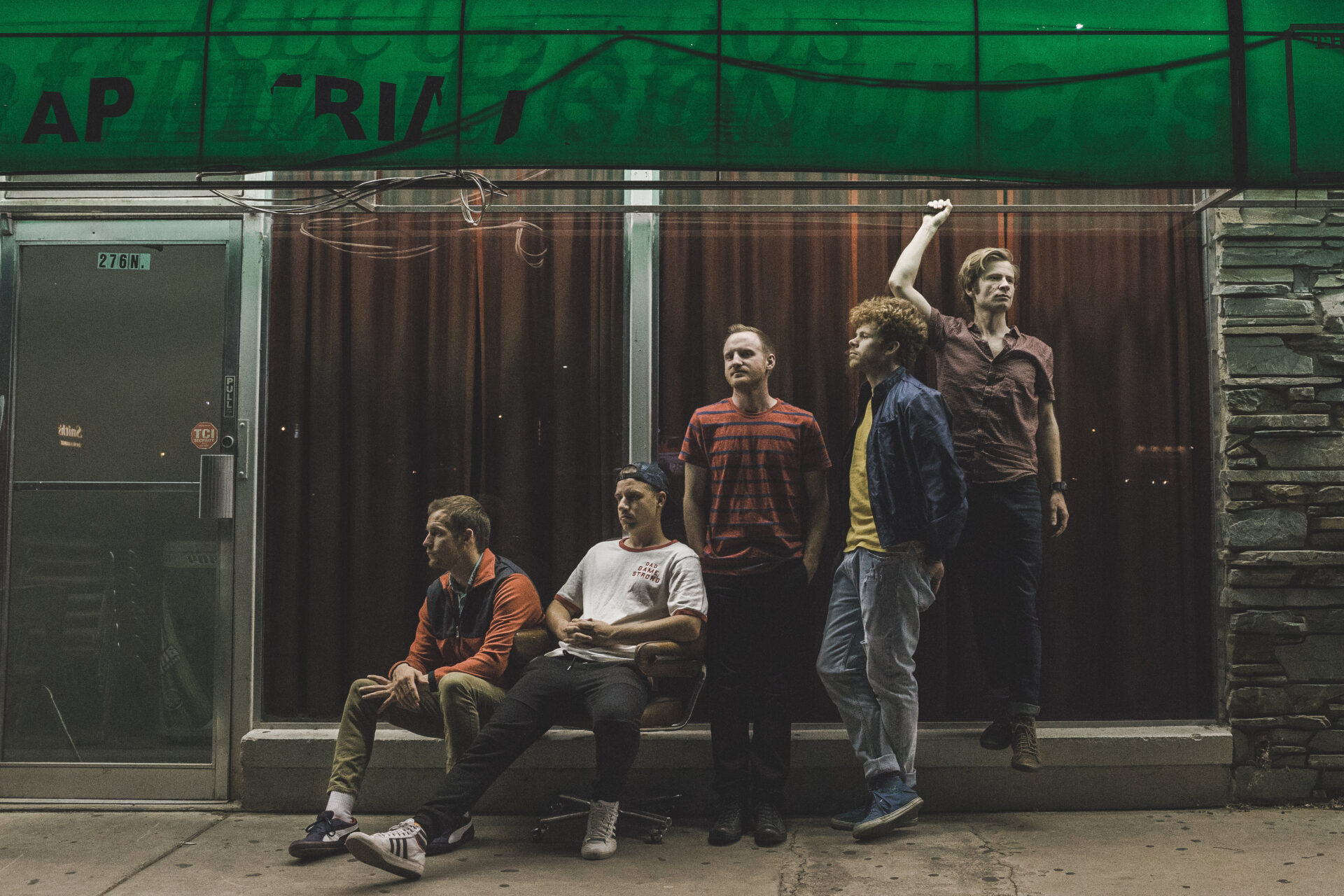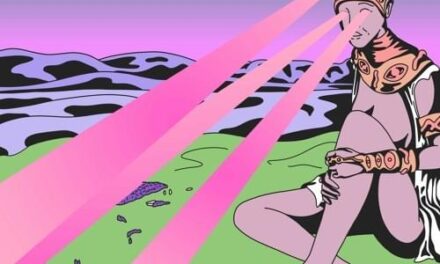Every once in a while, you come across an artist whose music connects so easily, it feels immediately familiar – even if you’ve never heard it before.
For me, that was Bo Baskoro and his track “Levee.” Struck by the track’s raw, powerful lyrics about finding salvation, redemption, and relief, combined with a percussive, cinematic arrangement that sat somewhere between Bleachers, OneRepublic, and A R I Z O N A, I was caught between feeling like this was a song I’d heard a thousand times before because of how well I understood it – and mind-blown that it was the first time I was hearing it.
Back in 2014, Bo Baskoro released his first EP, Architecture, followed by I Keep My Eyes Closed in 2017. Recovery from a tumor and labrum tear surgery proved to be a turning point to his career: Maxwell House® commissioned a mini-documentary of Baskoro’s experience, and he worked with producer Harvey Mason Jr. (Tori Kelly, Justin Timberlake, Michael Jackson) for “High”, produced for a Maxwell House® marketing campaign. In 2018, Baskoro released “Mercy” and “The Color Blue”; the following year, he released “Oasis” and “Levee.” His third EP, Wildfire, came in 2021.
Bo Baskoro’s most recent release is “The Lonely Nights”, a wistful, melancholic song about wanting the best for someone who couldn’t care less about your feelings. Released on July 14, “The Lonely Nights” follows “DNA” (released in February) and “Holding You Over” (released in May), a similarly heartbroken track about realizing you’re just a placeholder.
I recently spoke with Bo Baskoro about the new single, working with producer Justin Abel, his recent move from Portland, Oregon to Los Angeles, and more. The full interview can be read below.
Molly Hudelson: You just put out your new single, “The Lonely Nights.” What inspired the song? Was there a specific memory or event you were thinking of?
Bo Baskoro: I think a lot of people experience this, where you’re seeing someone or you’re with someone that is just desperate for love/attention. And they’re expecting you to give them that attention, or that love, in a specific way. If you’re not meeting those standards, they will still hang on to you for what you do offer them and move on to finding someone else.
It’s one of the most petty songs I’ve ever written, because it’s very directly about a specific moment in my life. I was shook, because – I was more frustrated with the fact that you actually moved on that quick. It was like, I wasn’t the purpose, or I wasn’t the point of this. You just needed some attention, and it didn’t matter who you got it from. It almost feels like you’re objectified, like you don’t matter. It’s just what you give to that person that matters.
MH: You worked with Justin Abel for the song – tell me about that.
BB: Yes! I wrote and produced the song. [Justin and I] often do this thing where I will produce a song and I’ll send it to him to verify it’s ready for mixing. And he’ll either mix it or he’ll add a few other touches on it to really make it shine. That’s what ended up happening with this one. It had some identity crisis where I was in my “Love You Now” phase, if you will, where there’s the synths, and all these gated reverb-sounding drums and instruments, and that wasn’t necessarily the direction I wanted to go. I told Justin, “I want to shift the direction of the sound.” We got in the studio together and polished a few things and made it a little bit more of that kind of alt [sound], added a little bit more real instruments in it. And I love the direction that we’re going now with it.
MH: That leads me to two questions to follow up. The first is, how did you and Justin first connect? Because you’ve worked together before.
BB: Justin and I met when he was in middle school. I was in a band, and he was in a band. We had known each other because we were in the same circle of friends. He started getting into drums, and he hit me up and he was like, “Hey, if you ever want a drummer, let me know. I’d love to play for you.” And I was like, “that’s cute.”
But then he started producing. And he’s like, “Hey, I’m looking for some people to produce to really get my feet wet on this. Would you be interested in doing a song?”. So, I was like, “Yeah, sure, why not?”. And literally, that was almost 10 years ago now. I don’t think I’ve ever worked with another person, besides Harvey [Mason Jr.], with the Maxwell House campaign. He’s gotten better and he just keeps getting better, and it’s always so fun to work with him. He kept evolving in his direction and I kept evolving in mine. And we just kept in touch. We worked [so] well together that we were like, “why change it?”.
MH: You were talking about how the song does use a lot of “real instruments.” But there is a little bit of synth in there. Can you talk to me about blending “electronic” and “organic” elements? How do you combine two opposite approaches?
BB: The reason that I was doing so much synth stuff for a time was because I couldn’t record myself, I couldn’t record my instruments; I didn’t have the access to do it. So, I was doing what I could with synths. There were some really interesting sounds that were fitting into the songs that – we tried taking them out and we were like, “honestly, it completes the song.” So we left them in, and we’re like, “oh, this is a great blend.” And we knew we wanted real guitar – real acoustic, real electric – and piano. I know the acoustic version, when that comes out, it’s gonna have real piano.
It’s a nice, slow change of the direction that I’m in. But also, I feel like that’s the state of music right now – real instruments, but then there’s always some sort of synth element to it. So, we’re going along with where the state of music is. The goal for me now is, release the single and then do a stripped version or an acoustic version. That is so life-giving to me, because not only does that give me an opportunity to mix my own music and produce the way I want to, but it gets back to the root of how I created this music and the intention behind it.
I’ve always wanted to have music that felt like a scene in a movie. I was inspired to write music because I saw shows or movies with these beautiful, chill songs and sad-ass songs, and most of the time they were stripped songs. I’m finally at a place where I know what I want for my music and I’m going to make my own decisions. I grew up letting other people dictate my decisions, especially in my career. Now, I’m in a place where I like both sounds, but that’s also really freeing that I can do both because I liked the song in any form, and it gives you more opportunity to explore two different visions of one body of art.
- Photo by Shawnie Fortune
- Photo by Shawnie Fortune
- Photo by Shawnie Fortune
MH: It’s so fascinating to me that you said that some of the synth stuff essentially came about because you could only do so much on your own – because to me, “Love You Now”, the synth and the production of it works so well – I almost couldn’t imagine that song super stripped.
BB: Oh, dude, I totally agree with you. And I feel like that song was created for that moment in time and I’m so proud of it and it’s so perfect for that time period. Even performing it now, I 100% would do that again. I was getting the Jack Antonoff, Bleachers, vibe I wanted.
MH: If someone were to put “The Lonely Nights” in a movie, what kind of movie would it be?
BB: I’m calling myself out. The thing is, it’s so big that it wouldn’t necessarily be an indie film. But I always think about The Perks of Being a Wallflower and movies like that, and that fits in my head. But it’s also too big. So, I almost want to say… something ridiculous, like an early 2000s rom com, which is so stupid.
MH: No, no, it’s not stupid at all, I don’t think.
BB: It’s tough to say for this. I will tell you, I think it works perfectly in a CW drama. Not a movie, but a CW drama for sure.
MH: I could see “DNA” being in Riverdale.
BB: Oh, you’re so right. Definitely.
I’ve been doing this thing on Tik Tok recently, where the last three songs I’ve released. I’m making anime edits for all of them. If that was ever a thing, I would love a song of mine in an anime.
But also, that’s another thing with the direction of my music. It’s epic and cinematic, but the arrangement is also a little too ambiguous to really fit in anything. I’m calling myself out on this, but I think stripping it back is really gonna help it fit into those moments a little bit better. At least the sad songs. “DNA” is perfect how it is, and I think it works in anything.
MH: I’ve noticed that you have released a lot of songs that seem to come in pairs. You had “Oasis” and then “Levee”, “Close Enough” and “Love You Now”, and then “Holding You Over” and “The Lonely Nights.” To me, these seem to go together, different perspectives. Was that intentional?
BB: You are so perceptive! As a matter of fact, it was, yes. You’re the first person to catch that! I have kept that to myself, and no one has mentioned that! So, I will let you in on another thing: there are a few other songs that are coming out that were also supposed to be connected to these songs, and they were gonna come out in a different order. But we were like, “okay, wait, the timing doesn’t feel right to release it in that order. So, let’s reel it back.”
MH: You were talking about the order – “Holding You Over” and then “The Lonely Nights” about two months later. Why did that order make sense?
BB: “Holding You Over” was without a doubt going to be the first one because that’s a great transition from my previous sound. This song is a good jumping point; the sound is closer to the direction I want to be. They’re different scenarios entirely, but it gives a similar message. And I think it fits well. It felt congruent, I guess. It’s a little bit more upbeat than my other stuff, and a little bit more drive-y, if you will. So, in my head, this is a great song to blast in the car, on summer nights. It’s not necessarily a summer vibe; I would say this is end-of-summer sadboy shit, but…
MH: I was gonna say, this is a pretty sad song.
BB: Yeah, 100%. But it’s one of those things where – I don’t know if I’m the only person that thinks like this, but summer is the season of love. Once summer comes to a close, that’s when all the relationships end. I wanted to release it more in the fall because I felt like that, and it was a bit darker. Because the rest of the tunes didn’t cater to summer, I felt like this was better. If we did things how I originally wanted, this would have been in the fall, and it would have felt just as sad. But we had to be flexible with those releases, but I think this is the most upbeat song I have, and I feel like when you think upbeat, you think of summer.
The acoustic version should be coming out next month, either that or September, and it’s going to feel way more like an end of something.
MH: You recently moved from Portland to Los Angeles, what inspired you to finally make that move? And how has it been so far?
BB: I have lived in Portland most of my life. I’ve moved out of state a couple times, to Washington and California, but I moved back here because I was really hopeful of bringing my experiences to Portland and creating a community for myself, where it’s a whole creative group that is outside of LA, and New York, Nashville, all those places.
In Portland, there’s a large demographic of people in the creative scene that have a very negative attitude and perspective on everything. The longer I spent time in that community, the worse I felt about myself, the worse I felt about others, and the worse I felt about my ambitions. I realized that there were two kinds of people in this town, as music goes. There were the people that kept their head down and were grinding and trying to do their best and enjoying the process.
The second group were people who had big ambitions and [were] not actually achieving them. That group, they all would get together [and] encourage each other by trash-talking the other people that were accomplishing things. They were creating this community and the entire foundation was negativity. I’m sure there were good things about it, but overall, it was a very unhealthy environment.
It’s been six years since music really started picking up for me, [and] I’ve been doing all of it on my own. I’ll hire people to help me, but I haven’t had people that would, you know, word of mouth, send me to someone else or something. I kept trying to make friends and it just wasn’t working. And then the only time people wanted to make time for me was when they saw that I was getting playlisted on Spotify and getting more popular. People would be like, “Dude, I’d love to hang out and kick it some time.” And then I realized that they’re doing it because they think that I have some secret of how I kept getting playlists and how I kept getting all these opportunities, and when they realized that I had no actual advice to give, and it was all chance, I never heard from them again.
It made me feel really worthless. It felt like I had nothing to give to people and no one wanted to make time for me. Every time I tried to pursue some sort of project or really fight for a project, everything kept falling apart. And it happened enough that you get tired of it. You get anxiety, and you feel, like, PTSD, because all these bad things happen: every show I did, there was always some problem that stressed me the hell out. And even though I knew it was going to work out in the end somehow… I was always prepared for something to go wrong. I didn’t have anyone fighting for me and I didn’t have anyone helping me; I had to learn it all on my own.
I didn’t feel very supported. I consider myself a really positive person and being in an environment that’s completely negative or very apathetic starts to wear down on you. And during the pandemic, I started feeling that. Releasing my Wildfire EP was one of the hardest things I’ve ever done, because of how hard it was to get people to help me with it. So, I gave up and I did it myself. But I would have released it way sooner if it wasn’t for the fact that I felt like I was in the dark trying to figure it out on my own.
I was consistently going out of my way for other people, and I wasn’t having that reciprocated. I felt very gatekept and shut-out by a lot of people…. I was really lonely and, you know – making plans with people, paying photographers, paying videographers to do these things that completely fall through or they half-assed everything because they’re not in the mood. It starts to get to you. It’s like, “oh, well, if they don’t care about it, then I guess I don’t care about it either.”
It was really unhealthy. And I was like, “this is not conducive. I want to be in an area that people feel excited about the work that they do, and they want to be pursuing it. And they don’t want to do this half-assed.” It’s such a weird mood in Portland and it was rubbing off on me. I hated that for myself and I hated who I was after that.
Once I hit LA, I was meeting people that were so excited. And they’re like, “Wait, you’re actually really good at songwriting.” And I’m like, “You’re the first people outside of Oregon to tell me that, personally.” It’s crazy to think that not everyone understands or gets it. They’re still struggling to find a community of people that are going through it, still fighting for it and positive about it – and they feel fulfilled. It’s a totally different environment. It totally changed my perspective and my attitude. I want to be surrounded by people like that. [In Portland,] I kept surrounding myself with people that were negative and had these terrible attitudes because I felt like I was obligated to because I’m from here.
MH: It’s home, so this is where I am.
BB: So, to make it shorter, I needed a healthier and more positive environment, because that wasn’t happening in Portland.
MH: I’m glad you have found that in LA so far.
The last thing I want to really touch on before we wrap up is, in the press release that went out about “The Lonely Nights”, you mentioned that you received some diagnoses that gave you some answers about your mental health and made things feel a lot more manageable. And I want to know how that’s affected your approach to music?
BB: Very good question. I think that it’s giving me less anxiety with pursuing anything. It’s calmed my nerves; I feel less pressure and less of that anxiety of being prepared for anything to go wrong. My response was that I would have a terrible temper about all of it; now, I just laugh at it. It’s taken a lot of pressure off, and it’s helped me make decisions for myself. Before, I’d be like, “oh, what does this person think of the song? I like this line, but would other people like it? Would that one artist that I really appreciate and respect like it? Would this random person who doesn’t even know music like it? What do they want?”. I would start writing stuff catering to them and that robs the world of my own creativity, cuz I’m using someone else’s. And that’s taking away from who I am.
It’s been really cool to live as a regular human being now – a regular human being with normal stress and normal anxiety, instead of constantly thinking that everything is on fire and I’m dying.
MH: Yeah. That does not sound so pleasant.
Bo, this has been wonderful. I know you mentioned an acoustic of “The Lonely Nights” – is there anything else that you want to hint at or tell people to look out for?
BB: There’s more music coming. I used to only release twice a year, which is bizarre to me, but we’re gonna keep going. I have more music; there’s a few new off-the-rails songs that we’re gonna be releasing for some other projects that we have. I don’t know if we’re gonna officially release it, but we’ll definitely be sharing it. I’m excited to finally start being the artist I want to be, and I hope people stick around for it.

Follow Bo Baskoro on Instagram, TikTok, YouTube, Twitter, and Spotify.
















